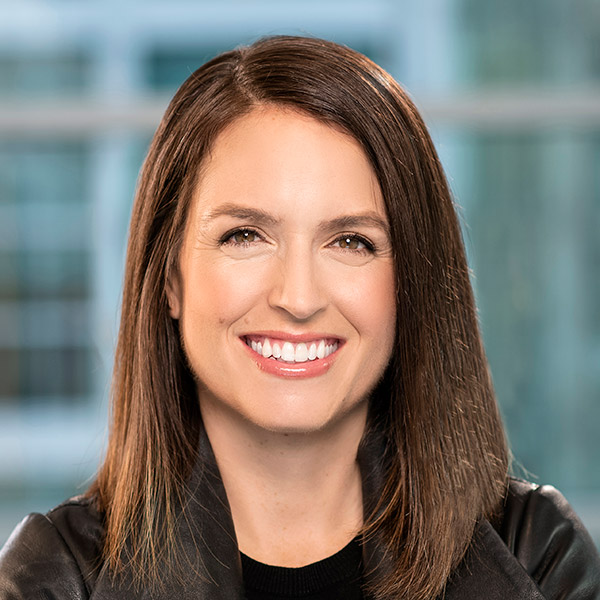Five years since its creation, our Slack Fund is bigger and better than ever before. And as businesses around the globe continue to shift the way they work with distributed workforces, we’re broadening our scope of investments so we can continue to help companies adapt and thrive in this new age of remote work.
“There’s a lot of great things that are happening with remote work,” says Christina Janzer, senior director of research and analytics at Slack. “Generally, it’s working, it’s very positive and it’s also what people want.”
Recently, we hosted a roundtable with some of our portfolio’s fantastic founders to discuss the future of work. Here are their observations, priorities and predictions for 2021.

“Whether it’s hybrid or fully remote, this new way of working is here to stay. This is the future that we all need to build and plan for.”
The future of work is already here
Before the roundtable started, we surveyed company founders in the Slack Fund portfolio to capture how the transition to remote work affected their organizations amid shelter-in-place orders. Topics included operations, funding decisions and evolving workforce strategies.
Survey results revealed that among Slack Fund founders:
- 83% believe that their biggest challenge while shifting to remote work was ensuring that their employees felt engaged and connected to their work
- 48% expect location policies to prioritize a “hybrid model” working arrangement—employees work from home most of the time but schedule occasional office visits—after the Covid-19 pandemic ends
- 45% anticipate that their workforce will remain completely distributed
- 28% believe that their companies will adopt a “hybrid model”
During the roundtable discussion, Akshay Kothari, the chief operating officer at workspace software company Notion, shared that remote work has shifted the whole company’s perspective on how to get work done. “This whole year was a jolt to the system,” Kothari says. “We were very much an office-first group of people. If anything, it’s given us a lot of empathy for our users and how we could be enabling them more.”
Dan Manian, the CEO at Donut, echoed that sentiment. “We’ve been thrown into fully remote, which has been really hard,” says Manian. “But on some level, it’s pretty equitable. We’re all stuck in this screen together. By embracing remote work, we’ve flattened the Earth a little bit. We can hire someone in Dublin and ensure they feel just as much a part of the team as someone that’s sitting in San Francisco with you.”

“I think the hybrid world is going to create some challenges, but also opportunities for how we build relationships equitably and inclusively.”
According to our survey, here’s how Slack Fund founders are tackling some of these remote work challenges:
- 72% are offering more flexible schedules
- 53% are offering a stipend for work-from-home expenses
- 53% are offering additional time off or recreational perks
How work will look in five years’ time
One of the critical discussions at our roundtable focused on what the future of work will look like in another five years. Despite the pandemic, company growth remains paramount for startup founders. In fact:
- More than 8 in 10 founders identified growth as their top priority
- Two-thirds of founders say they expect to grow their workforce by more than 25%
- 50% met or exceeded their funding targets for 2020
- 63% are forecasting that business performance will exceed expectations in 2021
Amy Spurling, the co-founder and CEO of perk stipend software company Compt, is also thinking about benefits and how they must evolve. And that makes sense, as Compt is working to help companies provide flexible, customizable and scalable employee stipends.
“If you’re lucky, 10% of the team uses the perks you bring in,” says Spurling, citing the need to let your employees decide what they need. “I think we’re swinging over to a much more healthy dynamic between companies and employees, which I’m pretty excited to see.”
Whether it’s through benefits or something else, making the working lives of employees more comfortable was a common thread in our roundtable discussion. Kothari believes the future will bring unification of software.

“I see a future where software gets more consolidated, and that makes people a lot more productive. People are looking for fewer tools to do their work.”
Iba Masood, the CEO at product development software company Tara.AI, agrees.
“When we think about the future of work, we need to think about how to essentially make the individual users’ lives easier,” Masood says. “What are common, repetitive, and manual actions developers have to perform to go from idea to execution? Rather than having 12 clicks to start a sprint, it should just be one. Rather than having to map out the workflow, your system should be able to sync to your existing flow and map it back.”
When nurtured, cultivated and strengthened, we believe the future of work will be simpler, more pleasant and more productive. Whether you do your best work in a meeting room alongside your closest colleagues or on a couch somewhere at the farthest reaches of your WiFi signal, your satisfaction is tied to your company’s success, and that’s worth the investment. [# /][ad id="37761" /]






